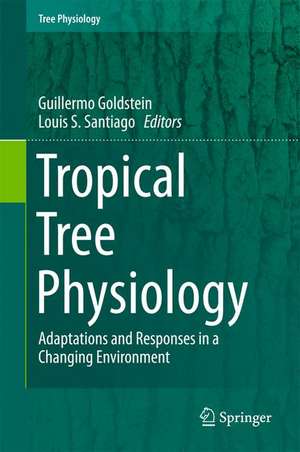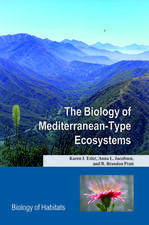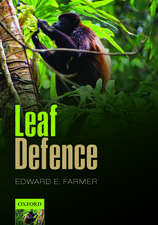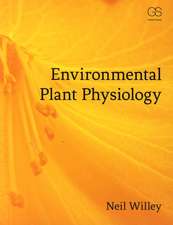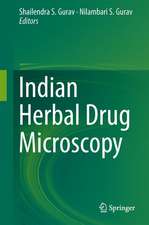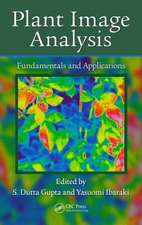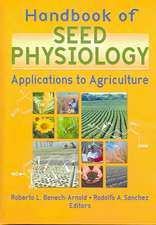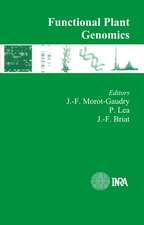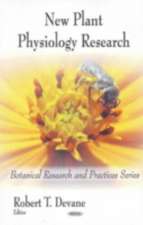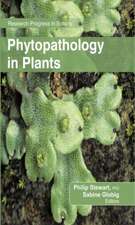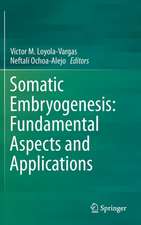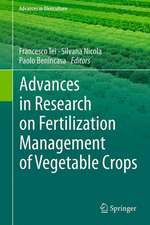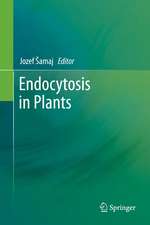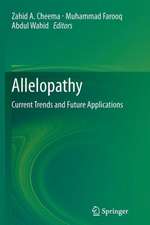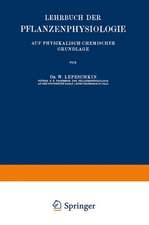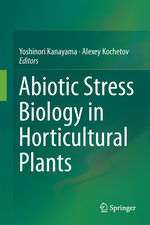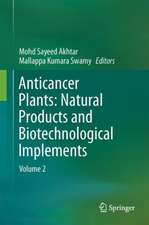Tropical Tree Physiology: Adaptations and Responses in a Changing Environment: Tree Physiology, cartea 6
Editat de Guillermo Goldstein, Louis S. Santiagoen Limba Engleză Hardback – 14 mar 2016
| Toate formatele și edițiile | Preț | Express |
|---|---|---|
| Paperback (1) | 1389.15 lei 6-8 săpt. | |
| Springer International Publishing – 25 apr 2018 | 1389.15 lei 6-8 săpt. | |
| Hardback (1) | 1395.47 lei 6-8 săpt. | |
| Springer International Publishing – 14 mar 2016 | 1395.47 lei 6-8 săpt. |
Preț: 1395.47 lei
Preț vechi: 1701.79 lei
-18% Nou
Puncte Express: 2093
Preț estimativ în valută:
267.03€ • 275.48$ • 222.83£
267.03€ • 275.48$ • 222.83£
Carte tipărită la comandă
Livrare economică 27 martie-10 aprilie
Preluare comenzi: 021 569.72.76
Specificații
ISBN-13: 9783319274201
ISBN-10: 3319274201
Pagini: 467
Ilustrații: XVIII, 467 p. 126 illus., 72 illus. in color.
Dimensiuni: 155 x 235 x 27 mm
Greutate: 0.86 kg
Ediția:1st ed. 2016
Editura: Springer International Publishing
Colecția Springer
Seria Tree Physiology
Locul publicării:Cham, Switzerland
ISBN-10: 3319274201
Pagini: 467
Ilustrații: XVIII, 467 p. 126 illus., 72 illus. in color.
Dimensiuni: 155 x 235 x 27 mm
Greutate: 0.86 kg
Ediția:1st ed. 2016
Editura: Springer International Publishing
Colecția Springer
Seria Tree Physiology
Locul publicării:Cham, Switzerland
Public țintă
ResearchCuprins
Physiology and life history traits of unique arborescent tropical growth forms.- Hemi epiphytic trees: Ficus as a model system for understanding hemiepiphytism.- Drought deciduous trees e.g. limestone outcrops in China and Brazil and trees from deciduous tropical forests including dry forests from the Yucatan Peninsula and Puerto Rico. What is unique about these trees?- Flood tolerant trees: many areas of lowland rainforest remain flooded for several months and the water sometimes can cover all the trees.- Stem succulent trees (baobab and other similar stem succulent trees).- Palms.- Mangroves.- Lianas.- Arborescent tree forms near treeline.- Process oriented chapters Hydraulic architecture and water transport Nutrient relations Carbon assimilation, photoinhibition, shade tolerance Tree ring chronologies, global climate change Different spatial and temporal scales
Textul de pe ultima copertă
This book presents the latest information on tropical tree physiology, making it a valuable research tool for a wide variety of researchers. It is also of general interest to ecologists (e.g. Ecological Society of America; > 3000 or 4000 members at annual meeting), physiologists (e.g. American Society of Plant Biologists; > 2,000 members at annual meeting), and tropical biologists (e.g. Association for Tropical Biology and Conservation, ATBC; > 500 members at annual meeting). (American Geophysical Union(AGU), > 20000 members at annual meeting). Since plant physiology is taught at every university that offers a life sciences, forestry or agricultural program, and physiology is a focus at research institutes and agencies worldwide, the book is a must-have for university and research institution libraries.
Caracteristici
Caters to a wide audience including ecophysiologists, evolutionary biologists, tropical biologists, ecologists, and global climate change scientists Authors are among the most well-known and creative scientists in each field There has been a substantial increase of mechanistic and process-oriented studies in the tropics during the last few decades Includes supplementary material: sn.pub/extras
